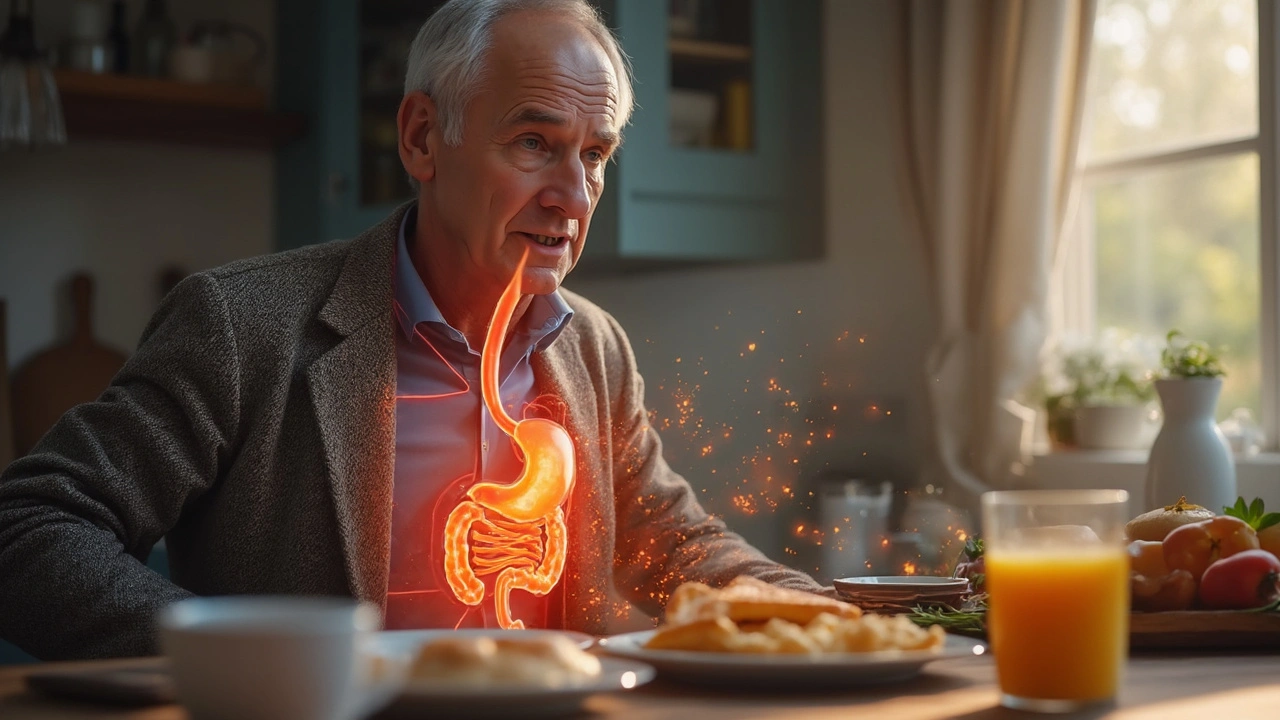Proton pump inhibitor (PPI) — what you need to know
If you get heartburn, GERD, or stomach ulcers, your doctor may suggest a proton pump inhibitor (PPI). These drugs cut stomach acid production and give quick relief. Common names you’ll see are omeprazole, esomeprazole, pantoprazole, lansoprazole, and rabeprazole. They’re powerful and work better than antacids for many people — but they’re not risk-free.
How PPIs work and when they help
PPIs block the acid-making pump in stomach cells. That lowers acid for many hours and lets inflamed tissue heal. Doctors prescribe them for: GERD (chronic acid reflux), peptic ulcers, H. pylori treatment (with antibiotics), Zollinger-Ellison syndrome, and to protect the stomach when taking long-term NSAIDs. Short courses (2–8 weeks) are common and often solve the problem.
How to use PPIs safely
Take PPIs 30–60 minutes before your main meal for best effect. Use the lowest dose that controls symptoms. If your symptoms clear, ask your doctor about stopping or stepping down — suddenly stopping can cause rebound acid and worse heartburn. If you need a PPI for months or longer, your doctor should check you periodically.
Watch for common side effects: headaches, nausea, belly pain, or constipation. More serious risks rise with long-term use: lower magnesium levels, reduced vitamin B12 absorption, higher risk of bone fractures in older adults, and a small increase in certain infections like Clostridioides difficile. Rarely, PPIs can affect kidney function. If you’re on a PPI for over three months, ask your provider about blood tests for magnesium and B12 and a bone health review if you’re at risk.
Drug interactions matter. For example, some PPIs can reduce the effect of clopidogrel (a blood thinner). Others interfere with drugs that need stomach acid to be absorbed. Always tell your doctor about all medicines and supplements you take. If you buy medicines online, use licensed pharmacies and require a prescription when one is needed.
If heartburn returns after stopping a PPI, try short-term options first: antacids for immediate relief or an H2 blocker like famotidine at night. Lifestyle changes help too: lose weight if needed, avoid trigger foods (spicy, fatty meals, large late dinners), quit smoking, and raise the head of your bed by 10–15 cm. These steps can cut how much medicine you need.
When should you see a doctor? Seek care if you have difficulty swallowing, unintentional weight loss, persistent vomiting, black or bloody stools, or severe chest pain. These can be signs of a more serious problem. For most people, PPIs are very effective — but use them thoughtfully and stay in touch with your healthcare provider to keep treatment safe and appropriate.

Protonix: The Truth About This Acid Reducer, How It Works, and Real-Life Tips
Protonix, known generically as pantoprazole, is a widely prescribed medicine for controlling stomach acid. This article lays out what Protonix does inside your body, who actually needs it, and what you need to watch out for if you take it. There are some very interesting facts about long-term use, and you'll read actionable tips to make it work its best for you. If you want the real story behind heartburn and acid blockers, this is for you.
read more




